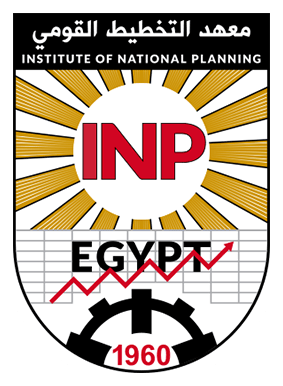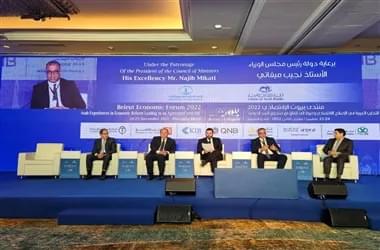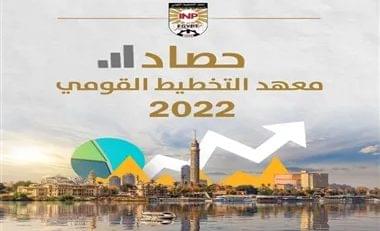During his participation in the Arab Economic Forum in Beirut: “Al-Araby” reviews the experience of economic reform in Egypt
And he affirms: The basic principles on which Egypt’s experience in economic reform was based centered around the integration between the role of the state and the private sector, the synchronization between financial and monetary reform with economic reform, work to improve the investment environment and achieve the goals of social justice.
Dr. Ashraf El-Araby, President of the Institute of National Planning, participated in the economic forum hosted by the Lebanese capital, Beirut, on the 24th and 25th of November 2022, under the title: “Arab experiences in economic reform leading to an agreement with the International Monetary Fund”, during which he presented Egypt’s experience. In economic reform, and lessons that can be learned from the Lebanese case, in the presence of a group of economists in the Arab world under the auspices and presence of Mr. Najib Mikati, Prime Minister of Lebanon and the auspices of the Union of Arab Banks and the International Union of Arab Bankers.
At the beginning of his speech, Dr. Ashraf Al-Arabi stressed, on a set of important messages, that security and political stability is an urgent necessity and a precondition to ensure the success of any financial and economic reform process, stressing that financial and monetary reform must coincide and integrate with the structural reform process, to ensure its sustainability. The reform process, stressing the need to expedite the implementation of the reform process because the delay increases its cost.
He explained that the main objectives of the economic reform process are summed up in achieving political and macroeconomic stability, improving the business climate, deepening labor markets, simplifying regulations, encouraging competition, in addition to improving the allocation of resources in the economy, attracting more investments and increasing productivity in a way that provides an environment conducive to attracting the private sector.
In conclusion, the President of the Institute of National Planning stressed the importance of reforming the regulatory framework, supporting competition, empowering the private sector, improving access to the financing necessary for the development process, strengthening the principles of governance and transparency in state-owned institutions, combating corruption, and consolidating the principles of social justice. He also called for the importance of integrating the role of the state with the sector. The private.
It should be noted that the forum discusses a group of important economic issues, and reviews the obstacles and challenges that stand in the way of reform, in addition to discussing the problem of is the International Monetary Fund a reform necessity or a prelude to a political crisis? In addition to presenting an analytical reading of the Arab experiences in the economic reform process.
Related Posts
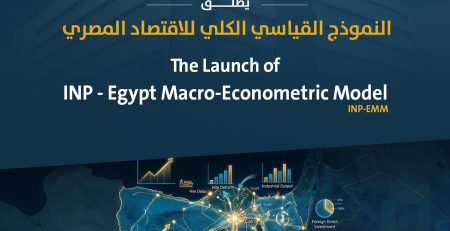
Now.. The Institute of National Planning is launching Egypt Macro-Econometric Model (INP-EMM)
Now.. The Institute of National Planning is launching Egypt Macro-Econometric Model (INP-EMM)
To view the document, please click on the... read more
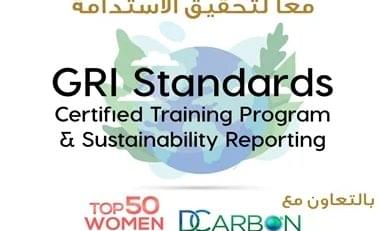
“GRI Standards Certified Training Program & Sustainability Reporting” training course
The Institute of National Planning, in cooperation with Top 50 Women Forum and DCarbon Egypt, holds a training course “GRI... read more
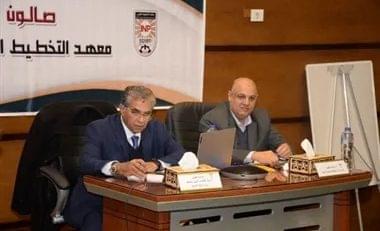
Under the title “The Most Important Outputs of the COP27 Climate Change Conference,” the Environmental Planning and Development Center at the Institute of National Planning held a symposium by Prof. Dr. Khaled Fahmy, Professor of Environmental Economics at the Institute and former Minister of Environment
The Environmental Planning and Development Center at the Institute of National Planning discusses the most important outputs of the COP27... read more
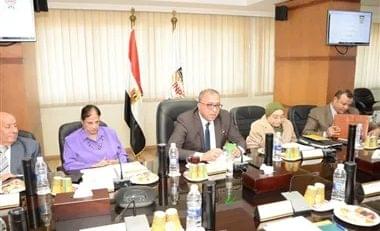
The Institute of National Planning holds a new episode of expert meeting entitled “The Policy of Restricting Imports… What it has and what it has to do”
Within the framework of the National Planning Institute's interest in specialized topics and discussing important economic issues with a group... read more

The National Council for Women (NCW), in cooperation with the Institute of National Planning (INP) and the International Training Center of the International Labor Organization (ITCILO), Turin, Italy, launched on December 18 and 19, 2023, a workshop entitled “Institutional Analysis Response to Gender Equality and Women Empowerment”,
within the "Increasing the Participation of Women in Public Life in Egypt" project implemented by the NCW in cooperation with... read more
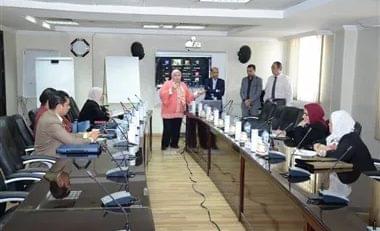
The Institute of National Planning opens the second session of the “Professional Diploma in Governance and Sustainable Development” training program for employees of the Ministry of Health and Population
Based on the Institute of National Planning's keenness to raise the efficiency of the state's administrative apparatus, promote investment in... read more

The National Planning Institute signs a memorandum of understanding with the National Anti-Corruption Academy of the Administrative Control Authority
Prof. Dr. Ashraf El-Araby, President of the National Planning Institute, and Mr. Khaled Abdel-Rahman, Assistant President of the Administrative Control... read more
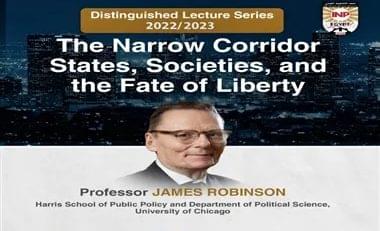
The Institute of National Planning holds a distinguished lecture on “The Narrow Corridor: States, Communities, and the Fate of Freedom”
The Institute of National Planning holds a distinguished lecture on "The Narrow Corridor: States, Communities, and the Fate of Freedom"
The... read more
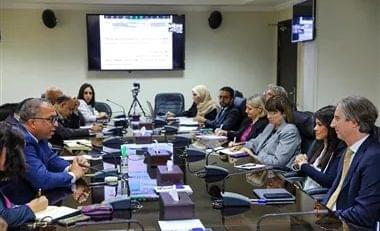
“International Cooperation” and “National Planning” hold a joint coordination cooperation platform to discuss partnerships with international institutions to enhance the institute’s role in supporting sustainable development efforts
"International Cooperation" and "National Planning" hold a joint coordination cooperation platform to discuss partnerships with international institutions to enhance the... read more
